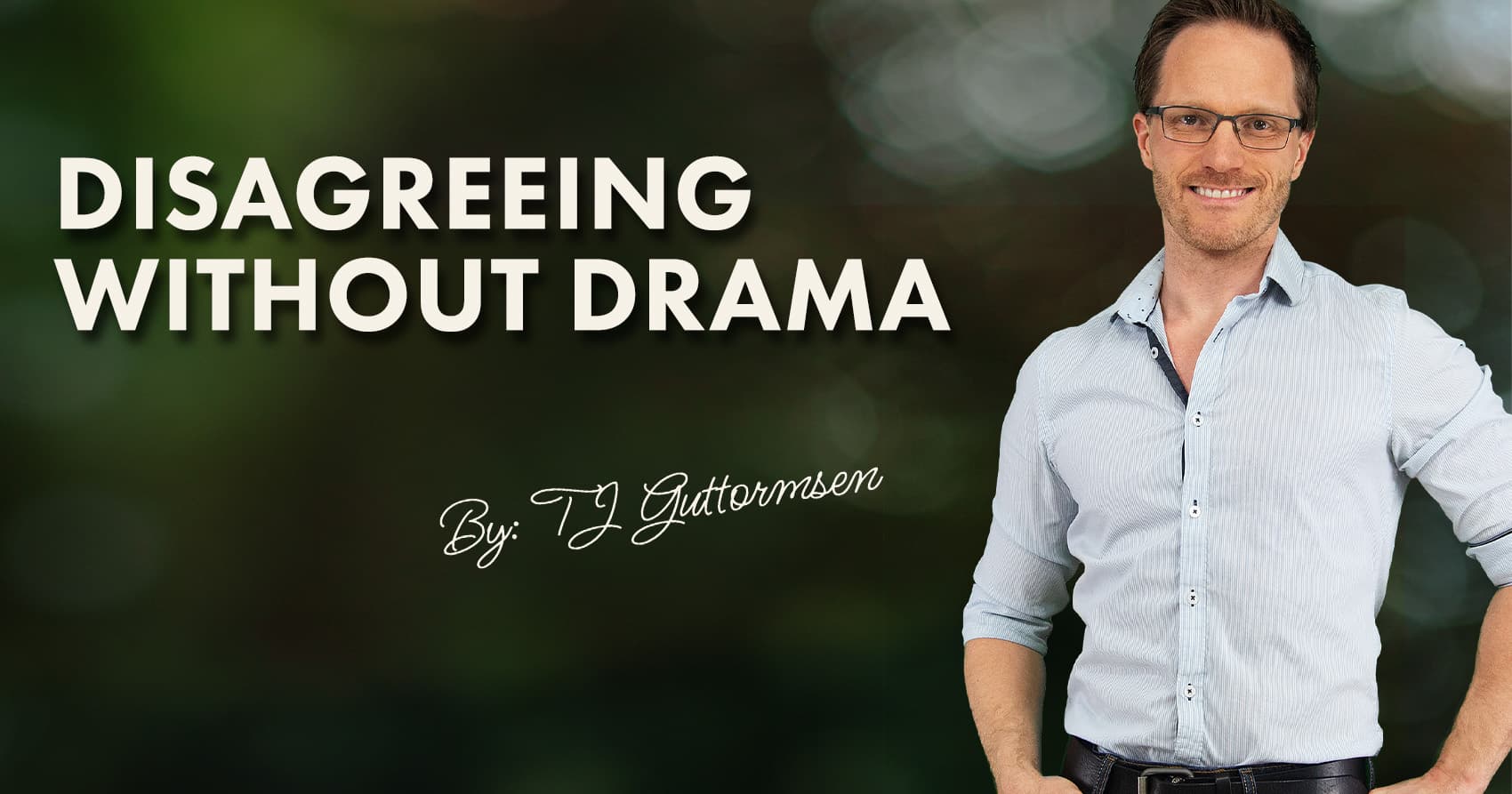Do you sometimes hesitate to speak up when you disagree with someone, because you don't want any drama? This article is for you!

More people than you might think hesitate to speak up when they disagree with others, because they don’t want to risk conflict or drama.
But after nearly two decades of teaching conflict management and prevention, one thing is very clear:
Conflicts don’t happen because we disagree—but because of how we disagree.
Research in conflict resolution shows us something interesting:
People don't get defensive because you disagree with their idea or opinion, but because they feel like you’re disagreeing with something more fundamental to them as a person.
When someone feels like you're questioning their intelligence, values, or identity, their brain switches into defense mode. And once that happens, productive conversation goes out the window.
A study published in the Journal of Applied Psychology found that when people feel psychologically safe in a conversation—meaning they don't feel personally threatened—they're significantly more open to hearing different perspectives and changing their minds.
So the secret to disagreeing without causing drama is simple:
Make it crystal clear that you're disagreeing with an idea, not with them as a person.
Before you share your perspective, find something in what they said that you can genuinely appreciate or agree with. A few examples include:
“I fully understand how you reached that conclusion.” “That's an interesting point about …” “You’ve obviously done a good job analyzing this.”
Find something you can honestly acknowledge to show that you listened and that you respect and appreciate their effort, insights, or abilities.
This creates what psychologists call psychological safety, and it makes people a lot more open to hearing what you have to say.
The words you choose matter a lot during disagreements.
Instead of saying “No, you're wrong because …” try “I see it a bit differently” or “Here's another way we could look at it.”
Instead of “That's not true,” go with “What I’ve read is …” or “My experience has been …”
Phrases like these tend to sound more collaborative than confrontational, and both research and my practical experience clearly show that they reduce defensiveness and increase mutual understanding.
If you sense the other person getting defensive, sometimes the best move is to simply state your intention out loud to let them know that it’s not an attack, but an invitation to have a productive discussion.
“I don’t mean to sound confrontational, I just wanted to explore this with you and see what we could learn. What do you think about …?”
Studies on metacommunication—talking about how we're communicating—show that this strategy is particularly effective for preventing conflicts from escalating.
Not every disagreement needs to be resolved. Sometimes the best thing you can do is agree to disagree.
If the other person is clearly not open to a discussion or if it really doesn’t matter whether they change their minds, it’s ok to let it go. Just end the conversation gracefully by smiling and saying something like, “Fair enough, we see this differently—and that's fine.”
Our goal shouldn’t be to win every disagreement. In many cases, a far better goal is to have conversations where everyone feels respected—even when you don't agree.
Disagreements don't have to be dramatic or confrontational.
When you separate the idea from the person, speak respectfully, show that you're listening, and use language that invites collaboration, you can disagree with just about anyone without creating conflict.
---
Studies:
Edmondson, A. (1999). Psychological safety and learning behavior in work teams. Administrative Science Quarterly, 44(2), 350-383. https://doi.org/10.2307/2666999
Jehn, K. A., & Mannix, E. A. (2001). The dynamic nature of conflict: A longitudinal study of intragroup conflict and group performance. Academy of Management Journal, 44(2), 238-251. https://doi.org/10.5465/3069453
Stone, D., Patton, B., & Heen, S. (2010). Difficult conversations: How to discuss what matters most. Penguin. (Research compilation on conflict resolution strategies)
Hi, I'm TJ Guttormsen.
Since 2009 I’ve coached clients ranging from Olympic gold medalists and billionaires, to people who simply want more out life.
I’ve done over 100 national media appearances, published books, and created online courses that have earned several “Highest Rated” titles from their 11 000+ members.
Today I coach clients from all over the world, and teach seminars for business and events from my home in Las Vegas.
Come join me in my Facebook group, follow my Instagram, or subscribe to my YouTube channel for fresh content on a regular basis.

